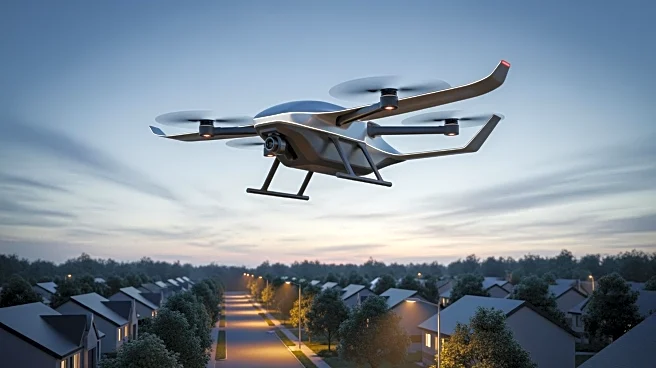What's Happening?
A panel of global industry leaders will convene at the 'Farming for the Future' event in Belém, Brazil, alongside the COP30 summit. Sponsored by Syngenta, the session will focus on enhancing agricultural
productivity while protecting the environment. Key figures, including Pedro Fernandes of Itaú Unibanco and André Savino of Syngenta Crop Protection Brazil, will discuss sustainable farming practices, land restoration, and soil health. The event aims to explore policies that support sustainable agriculture in Brazil and globally, addressing challenges such as emissions reduction and land degradation.
Why It's Important?
The event highlights the critical intersection of agriculture and environmental sustainability, a key focus at COP30. As agriculture is a significant contributor to greenhouse gas emissions, finding ways to increase productivity while minimizing environmental impact is crucial. The discussions could lead to innovative solutions and policies that support sustainable farming, benefiting both the environment and agricultural economies. The involvement of industry leaders and policymakers underscores the importance of cross-sector collaboration in addressing climate and food security challenges, potentially influencing future agricultural practices and policies worldwide.
What's Next?
The outcomes of the 'Farming for the Future' event could inform future agricultural policies and practices, particularly in Brazil, a major agricultural producer. The discussions may lead to new partnerships and initiatives aimed at promoting sustainable farming. Policymakers and industry leaders may use insights from the event to develop frameworks that support sustainable agriculture, potentially influencing international approaches to food security and climate change. The event's focus on practical solutions and case studies could inspire similar initiatives in other countries, fostering a global movement towards sustainable agricultural practices.
Beyond the Headlines
The event reflects a growing recognition of the need to balance agricultural productivity with environmental sustainability. It highlights the potential for innovative technologies and practices to transform the agricultural sector, reducing its environmental footprint while ensuring food security. The focus on Brazil's experience offers valuable lessons for other countries facing similar challenges, emphasizing the importance of context-specific solutions. The event also underscores the role of financial and policy frameworks in enabling sustainable practices, highlighting the need for supportive measures to make sustainable farming economically viable for producers of all sizes.











